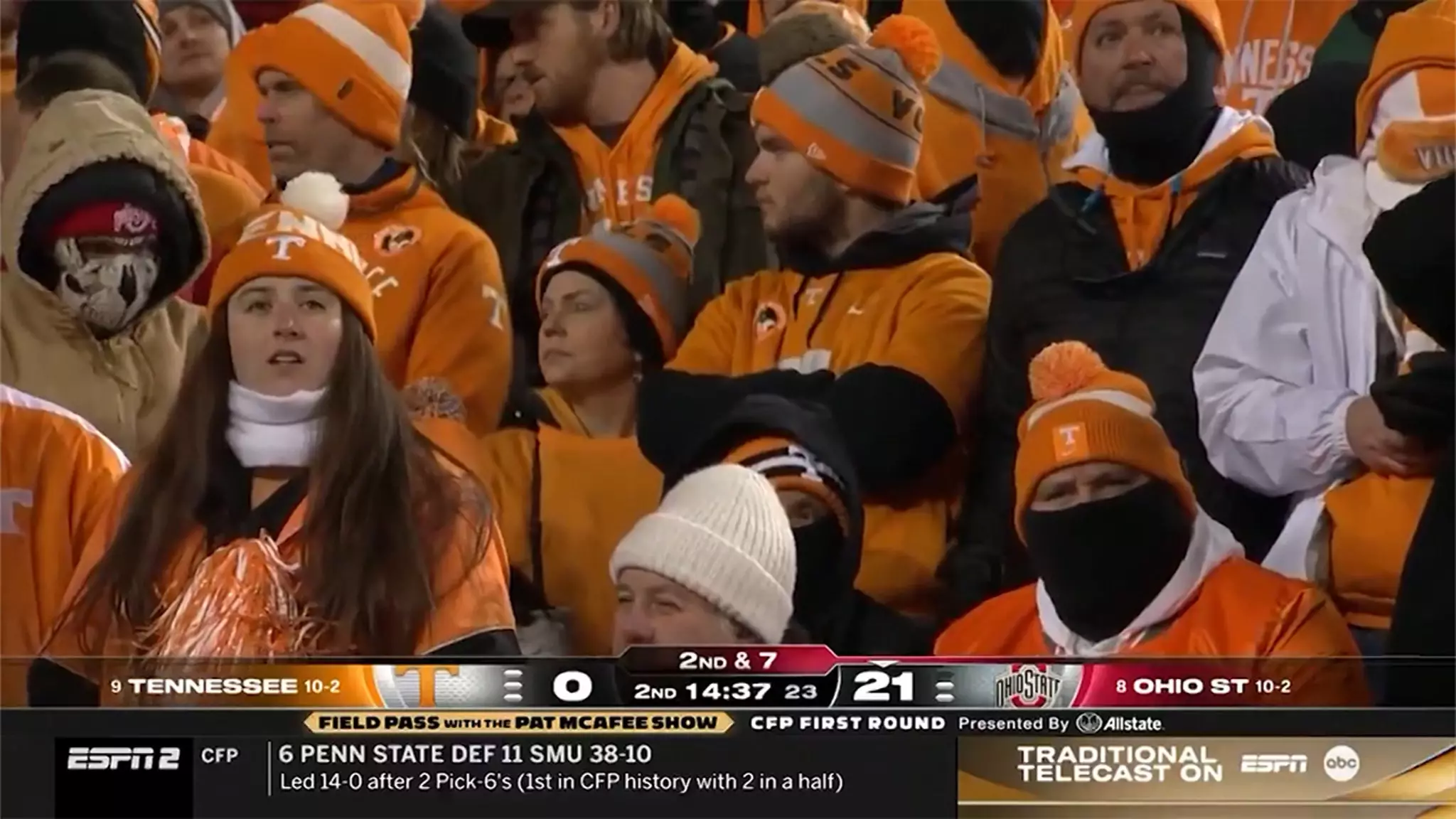In a highly anticipated matchup during the College Football Playoff, the Ohio State Buckeyes showcased exceptional prowess by decisively defeating the Tennessee Volunteers. This event drew significant attention, both for the game itself and for the unique commentary that accompanied it. ESPN presented a fresh twist by airing an alternate broadcast hosted by “The Pat McAfee Show,” known for its irreverent and sometimes controversial approach to sports discussion. What transpired on this alternate feed certainly departed from conventional commentary, sparking debate about the role of humor and decorum in sports broadcasting.
As Ohio State took a commanding 21-point lead, McAfee directed a segment to his colleague, Boston Connor, who was located near the Tennessee sidelines. In a moment that surprised even his companions, Connor delivered a crude jab regarding Ohio State’s fervent fan known as “Big Nut,” remarking that he was “busting his nut” on Tennessee fans. Such a comment not only reflected the irreverent nature of the show but also opened a floodgate of mixed reactions from viewers. Those tuned in varied significantly in their perspectives on the appropriateness of McAfee’s humor, with some seeing it as an entertaining twist and others decrying it as unprofessional.
The immediate aftermath on social media platforms, especially X, was telling. Many viewers expressed their discontent, articulating concerns over the direction of sports commentary. Comments ranged from calls to prioritize professionalism during broadcasts to outright criticisms of McAfee’s style. One user lamented, “This is family time smh we need to bring back professionalism,” indicating that the expectation for more traditional commentary still resonates with significant portions of the audience. Another commenter pointed out the potential risk of catering to what they termed the “lowest common denominator,” questioning the implications of such humor on the broader sports culture.
Despite the backlash, it is undeniable that McAfee and his crew have carved out a niche that appeals to many sports enthusiasts. Their blend of humor and unfiltered commentary has attracted a loyal following, contributing to their visibility within the ESPN ecosystem. This raises important questions about the evolving landscape of sports media—should networks like ESPN focus solely on professionalism, or is there room for a more playful, relatable approach that resonates with a younger demographic?
As the boundaries of sports commentary continue to shift, it’s increasingly clear that figures like McAfee play a significant role in shaping audience expectations. Whether loved or loathed, their presence signifies a broader cultural shift in how sports are consumed and discussed. The incident serves as a microcosm of this evolution, highlighting a landscape where every quip and jest can fuel both connection and outrage among fans. With this ongoing tug-of-war between humor and decorum, the future of sports commentary seems as unpredictable as the games they cover.

